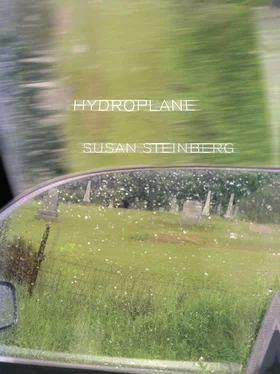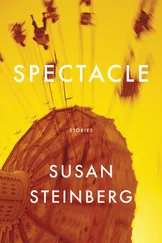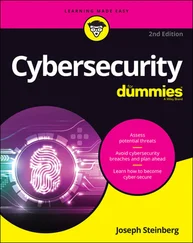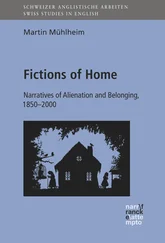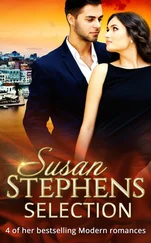Susan Steinberg - Hydroplane - Fictions
Здесь есть возможность читать онлайн «Susan Steinberg - Hydroplane - Fictions» весь текст электронной книги совершенно бесплатно (целиком полную версию без сокращений). В некоторых случаях можно слушать аудио, скачать через торрент в формате fb2 и присутствует краткое содержание. Год выпуска: 2006, Издательство: Fiction Collective 2, Жанр: Современная проза, на английском языке. Описание произведения, (предисловие) а так же отзывы посетителей доступны на портале библиотеки ЛибКат.
- Название:Hydroplane: Fictions
- Автор:
- Издательство:Fiction Collective 2
- Жанр:
- Год:2006
- ISBN:нет данных
- Рейтинг книги:4 / 5. Голосов: 1
-
Избранное:Добавить в избранное
- Отзывы:
-
Ваша оценка:
- 80
- 1
- 2
- 3
- 4
- 5
Hydroplane: Fictions: краткое содержание, описание и аннотация
Предлагаем к чтению аннотацию, описание, краткое содержание или предисловие (зависит от того, что написал сам автор книги «Hydroplane: Fictions»). Если вы не нашли необходимую информацию о книге — напишите в комментариях, мы постараемся отыскать её.
Hydroplane: Fictions — читать онлайн бесплатно полную книгу (весь текст) целиком
Ниже представлен текст книги, разбитый по страницам. Система сохранения места последней прочитанной страницы, позволяет с удобством читать онлайн бесплатно книгу «Hydroplane: Fictions», без необходимости каждый раз заново искать на чём Вы остановились. Поставьте закладку, и сможете в любой момент перейти на страницу, на которой закончили чтение.
Интервал:
Закладка:
The synagogue ladies made us dinners. They lived in houses by the synagogue. We liked the neighborhood kids, not the synagogue kids. And the synagogue kids did not like us back. And the synagogue ladies did not like us either. They clattered in their kitchens making food for us that smelled bad. Chopped liver. Deviled eggs. Gefilte fish. The ladies pulled our faces toward their tits every chance they got and squeezed us. We were the stars that month. They sent cakes and briskets and boiled potatoes to the house. All this food filling the goddamn house.
We knew to hold our breath in the toy store when we did not get what we wanted. Our faces turned purple when we held our breath. Our mother could walk off when we did this. Our father could not walk off. He said we would faint. But we never fainted. And he always caved.
In our last class of the day we held our breath for almost twenty-two seconds straight. The second hand dragged from twelve to five. We let in air before it hit five. The teachers' voices sounded underwater. We felt we were slipping to the floor. The teachers never noticed us slipping. We hoped to last all the way to six. We wanted to drown out the teachers for longer. But the final bell rang.
In the paint store our mother held strips of colored paper. The strips were different shades of blue for she said she wanted a dark blue shade. Like midnight blue, she said to the paint store salesclerk, sending the three of us to the door to wait. The salesclerk handed her several strips of blue colored paper over the counter, and our mother walked to where we stood by the door waiting for her with our father, our hands in our pockets, strips of blue paper in her hand. She said to our father, What do you think, knowing he would not give a damn one way or the other, knowing how he never cared, Blue, green, red, What's the goddamn difference. She waved the paper strips in front of his face and said, What do you think. He looked at the strips and said, it turned out, I was thinking red.
We played a game of horse in the drive. The sun went low behind our house. We could hear our father's coupe in the distance. Everyone backed into the yard. The coupe thundered up the drive. Our father blared the horn. The garage door wheezed upward. Our father pulled the coupe into the garage. He stepped out from the coupe and gave a look. A lost look. A look to the sky. A blank baby look we saw. A sign of trouble we now know A look we could see was frightening, blank.
We dragged our father back inside the toy store. The basketball hoop was on a shelf. We said, Just look at it. The other customers looked at us. The salesclerk looked to see if our father would cave. We said, You never get us anything, and held our breath. Our father said to stop. He said, Whoever stops can push the button. But we were almost in junior high and no longer cared about pushing a button, raising a door. We held our breath. Our father caved. He said, I'll look if you stop, Lord help me.
Our mother answered the phone when the neighbor called her at work that afternoon. We could hear our mother's voice through the phone. The neighbor told her to hurry. We stood in the doorway of the neighbor's house. We heard our mother.
Our father was up on the ladder when it was a new ladder when we were small. Our father painted the shutters midnight blue, using the new brushes our mother bought in the paint store. He whistled some song and the shutters looked dark, too dark, and we knew our mother would think this.
We stood inside the synagogue ladies' houses in the terrible house smells that never smelled like our house but smelled like chopped liver and gefilte fish and piss and dog, no matter how nice the house was. We heard the kids upstairs in their bedrooms watching TV. These kids were not our friends. Our friends were the neighborhood kids. The synagogue kids were the kids our mother wanted us to play with. They all had TVs in their rooms. They always hid upstairs in their bedrooms watching TV until dinner was on the table. We heard their mothers talking to the kids and the kids saying things like, We're not friends, and the mothers shushing them, and the kids saying things like, I don't like them, and the mothers saying, Get dressed and get the hell downstairs.
On the walk home from school we dragged our feet. We dragged our jackets along the walk. It could have been any fall day, the dusty smell of leaves and cold. A smell of rain. Thunder in the distance. The airless basketball was still in weeds in the yard. Like a pumpkin growing there. A flattened out pumpkin. A good thought to have in fall. We did not want to watch TV that day. There was nothing worth watching besides. We wanted to look at magazines in the garage. We raised the garage door partway and saw the two cars. We dropped our jackets to the drive. We could not do anything with two cars there. We considered basketball, a game of horse. The two of us. The neighborhood kids had stopped coming around. We ran back to the airless ball in the weeds. Like picking a rotted out pumpkin. Water squeezed out from its air hole. We went to look for the air pump. It was weird in the daytime to see both cars. We never saw the coupe on a school day. We knew our mother walked to work. We saw her run off in the morning. It was not too far for her to walk. But not our father with some kind of work downtown. He always got home way past dinner. Meat warmed on a plate in the oven, potatoes. We thought, split second, our father stayed home sick. We remembered him rubbing his face that morning. We thought of checking in our parents' bedroom. We split second thought of waking him with a jump on the bed, something he would not have liked, perhaps, if sick, but still.
We raised the garage door higher. We saw the ladder. The rusted paint cans. The paintbrushes stuck to the tops of the cans. The brooms in a bucket. The milk crates scattered. The jump ropes, skates. The magazines. The light was on above us.
Look. There was a shadow. A shapeless shadow. It was not of the brooms. It was shaped like nothing and cast on the cars. This does not sound right. But look. We looked up.
The salesclerk in the toy store said, You lucky kids. We looked at the purple pouches beneath our father's eyes. The salesclerk said, You lucky ducks, A brand new basketball hoop for you and a brand new ball. Plus a new air pump. We knew the salesclerk hated us. She hated how we acted. She wanted to smack us. We could tell.
The rabbi said that those in hell had their arms stuck out in front. He said that in hell they could not bend their arms at the joints. There were tables and tables of food in hell, all the wonderful food you could imagine. He said this food was there for everyone to eat, and that was hell.
The front door swung open. Our mother came outside to inspect our father's work. Our father never said, What do you think. Our mother blocked the sun with one hand and cried. She said, Shit. She said to us, crying, It's too goddamn dark, and our father, regardless, bought the coupe.
On the ride home from the toy store neither of us called shotgun. Both of us chose to sit in the back seat where we could flick the back of our father's neck for fun as he tried to drive. We laughed at this, at our flicking his neck until our father said, Stop it. So we stopped. But then we leaned up and flicked his neck again. Our father said, I told you to stop, so we stopped, sat back in the seat, then we leaned up slowly, looking at each other, both of us trying not to laugh, and flicked his neck. Our father pulled the coupe onto the shoulder and we stayed there. He said nothing. The traffic whooshed past.
The neighborhood kids backed into the yard. Our father stepped out from the coupe. He gave a look that was frightening, blank. He picked up the basketball from the yard. He stood with the ball in his hands. He hurled the ball at a neighborhood kid. He said, Get the fuck out of my way. The ball rolled into the weeds. Game over. The kids ran home. We ran into the house. Our mother was watching our father from the window. Our father stood frozen in place in the yard. One of us said, What's wrong with Dad, and our mother said, He's just in a mood.
Читать дальшеИнтервал:
Закладка:
Похожие книги на «Hydroplane: Fictions»
Представляем Вашему вниманию похожие книги на «Hydroplane: Fictions» списком для выбора. Мы отобрали схожую по названию и смыслу литературу в надежде предоставить читателям больше вариантов отыскать новые, интересные, ещё непрочитанные произведения.
Обсуждение, отзывы о книге «Hydroplane: Fictions» и просто собственные мнения читателей. Оставьте ваши комментарии, напишите, что Вы думаете о произведении, его смысле или главных героях. Укажите что конкретно понравилось, а что нет, и почему Вы так считаете.
